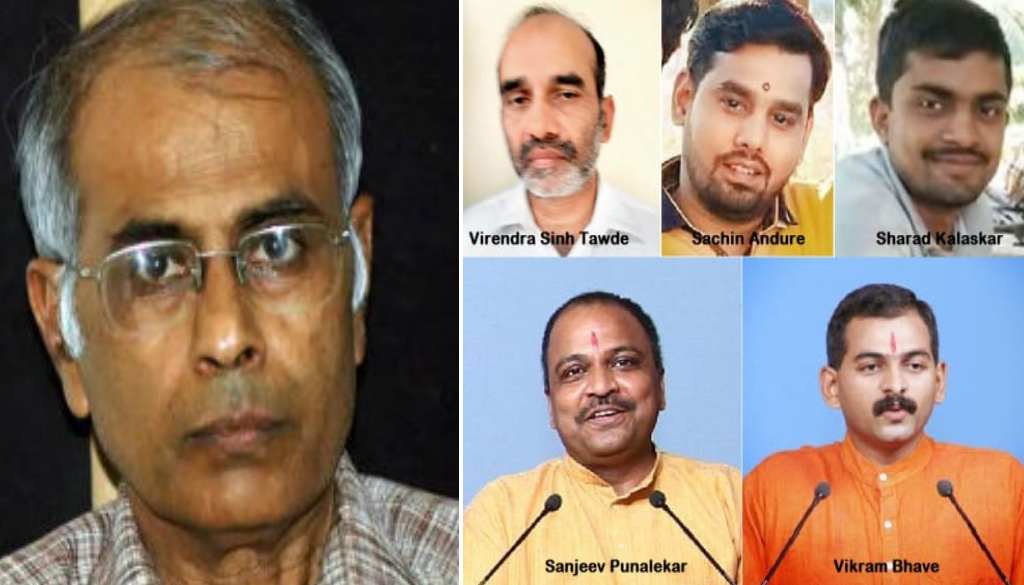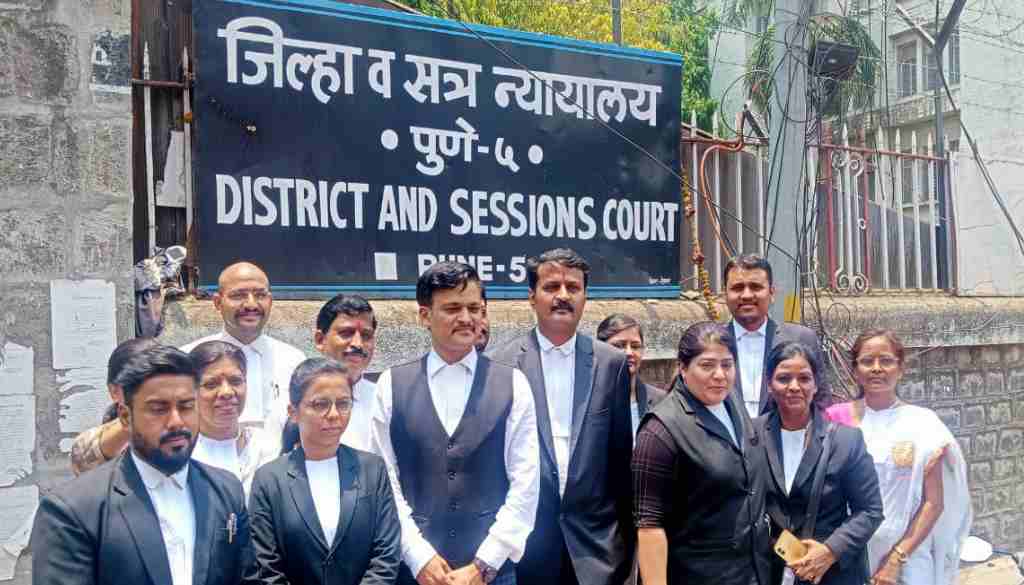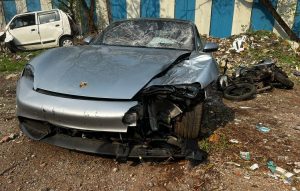Dr Narendra Dabholkar Termed Anti-Hindu; Suspicion Against Tawde, Punalekar, Bhave But CBI Failed To Provide Evidence – Observes Judge

Reported by Mubarak Ansari
Pune, 10th May 2024: Additional Sessions Judge Prabhakar P Jadhav, Special Court for UAPA cases, Pune, today handed down convictions to Sachin Prakashrao Andure and Sharad Bhausahab Kalaskar in the Dr. Narendra Dabholkar Murder Case. Both individuals have been sentenced to undergo life imprisonment and fined Rs. 5 lakh each. The court found them guilty of the murder of Dr. Dabholkar who was the founder of Maharashtra Andhashraddha Nirmulan Samiti (MANS).
The case dates back to 20th August 2013 when Dr. Narendra Dabholkar was shot dead by two assailants around 7:30 am on the bridge between Omkareshwar Temple and Balgandharva Auditorium in Pune, while he was on his morning walk. The case was initially registered at Deccan Police Station, Pune City. Later, the case was transferred to the Central Bureau of Investigation (CBI) by the Bombay High Court.
After a thorough investigation, the CBI filed a charge-sheet in the Pune Court on 06.09.2016. Subsequently, Supplementary charge-sheets were filed on 13.02.2019 and 20.11.2019 by the CBI. The breakthrough came in 2018 when Karnataka Police arrested the accused including Kalaskar in the murder case of activist Gauri Lankesh.
The trial proceedings took place in the Court of the District and Additional Sessions Judge, Pune, Special Court for UAPA, with the accused including Andure and Kalaskar, both from Chhatrapati Sambhajinagar district; Dr Virendrasinh Tawde, an ENT surgeon from Panvel, who was associated with right-wing organisation Sanatan Sanstha; Vikram Vinay Bhave from Panvel, and advocate Sanjiv Punalekar from Mumbai.
Upon completion of the trial, Special Court for UAPA cases, Pune, delivered its judgment today convicting Andure and Kalaskar while acquitting the other three accused Tawde, Bhave and Punalekar.
According to the judge, there exists a clear motive for the murder, pointing towards accused No.1, Dr. Tawde. Additionally, suspicion surrounds accused No. 4, Punalekar, and accused No.5, Bhave, implicating them in the crime. However, the prosecution has failed to provide substantial evidence against them transitioning mere motive and suspicion into concrete evidence of their involvement in the crime.
Nevertheless, the judge has affirmed, based on the entirety of the evidence presented, that Andure and Kalaskar, are responsible for Dr. Dabholkar’s murder by firing bullets from firearms. It’s been established that both accused individuals acted in concert with a common intention to commit the murder, leading to the conviction under section 302, read with section 34 of the Indian Penal Code, 1860.
However, the prosecution has not been able to establish the offence under section 16 of the UAPA Act against any of the accused, nor has the conspiracy offence been proven. Although the charge under section 201 of the Indian Penal Code for destroying firearms could not be substantiated against accused No. 4, Punalekar, the usage of firearms has been established through the recovery of two bullets from the victim’s body, indicating their involvement. Despite the lack of recovery of firearms during interrogation, legal precedent establishes that the seizure of weapons is not mandatory to prove an offence. Thus, the use of firearms by accused Nos. 2 and 3 has been proven, resulting in the offense punishable under section 3(25) of the Indian Arms Act.
In summary, accused Nos. 2 and 3 have been found guilty beyond reasonable doubt of the offences under sections 302 read with section 34 of the Indian Penal Code, 1860, and section 3(25) of the Indian Arms Act. However, no offence has been proven against accused Tawde, Bhave and Punalekar.
During the sentencing phase, advocates Virendra Ichalakaranjikar and Prakash Salshingikar argued against the imposition of the death penalty, stating that this case does not qualify as the “rarest of rare.” Special Public Prosecutor PS Suryawanshi also refrained from seeking the death penalty.

It’s noteworthy that accused Andure and Kalaskar harbored ideological differences with the deceased Dr. Narendra Dabholkar but did not have any personal animosity towards him. The murder was executed with meticulous planning, indicating a larger orchestration behind the crime. However, considering the socio-economic status of accused Andure and Kalaskar, they are not believed to be the masterminds behind the murder.
The main mastermind behind the crime is someone else. Pune police as well as CBI have failed to unearth those masterminds. They have to introspect whether it is their failure or deliberate inaction on their part due to the influence of any person in power.
It is interesting to note here that in the present case, the charge-sheeted accused and defence counsels have not merely attempted to raise the defence. From unnecessary and irrelevant lengthy cross-examination of the prosecution witnesses and even in the final argument, an attempt is made to tarnish the image of the deceased. At the same time, the approach of the defence was to justify the killing of the deceased Dr. Narendra Dabholkar, by labelling him as anti-Hindu. In said attempt, advocate Salshingikar referred to the yearly magazine which was published more than five years, after the death of Dr Narendra Dabholkar. The said approach is very strange and condemnable.
As already observed, it is not an exclusive act of Andure and Kalaskar, but definitely, there is a preplan by the masterminds. Unfortunately, the prosecution has failed to unmask those masterminds.
It is further to be noted here that in the present case, there is a reference to the confessional statement of accused Sharad Kalaskar recorded under Karnataka Control of Organised Crimes Act (KCOCA). As the said statement is not proved before the Court, this Court has not discussed the contents of the same and has not expressed any opinion as to whether it is correct or not. Therefore, said confession may be proved before the concerned Court. In the present case, the CBI ought to have carried out a detailed investigation from that angle.
Despite the false testimony of defence witnesses No.1 and No.2 (names withheld to protect identity) their actions are understood as a desperate attempt to protect their siblings, advised by the accused’s legal counsel. Given their circumstances, no punitive action is deemed appropriate against them for their false testimony. Both of them had testified that their brothers were not in Pune on 20th August 2013 ie the day of Rakshabandhan, but they were with their respective sisters to celebrate the Rakshabandhan.
Dabholkar Murder Case: “Conspiracy To Prove Sanatan Sanstha A Saffron Terrorist Organisation Foiled”





